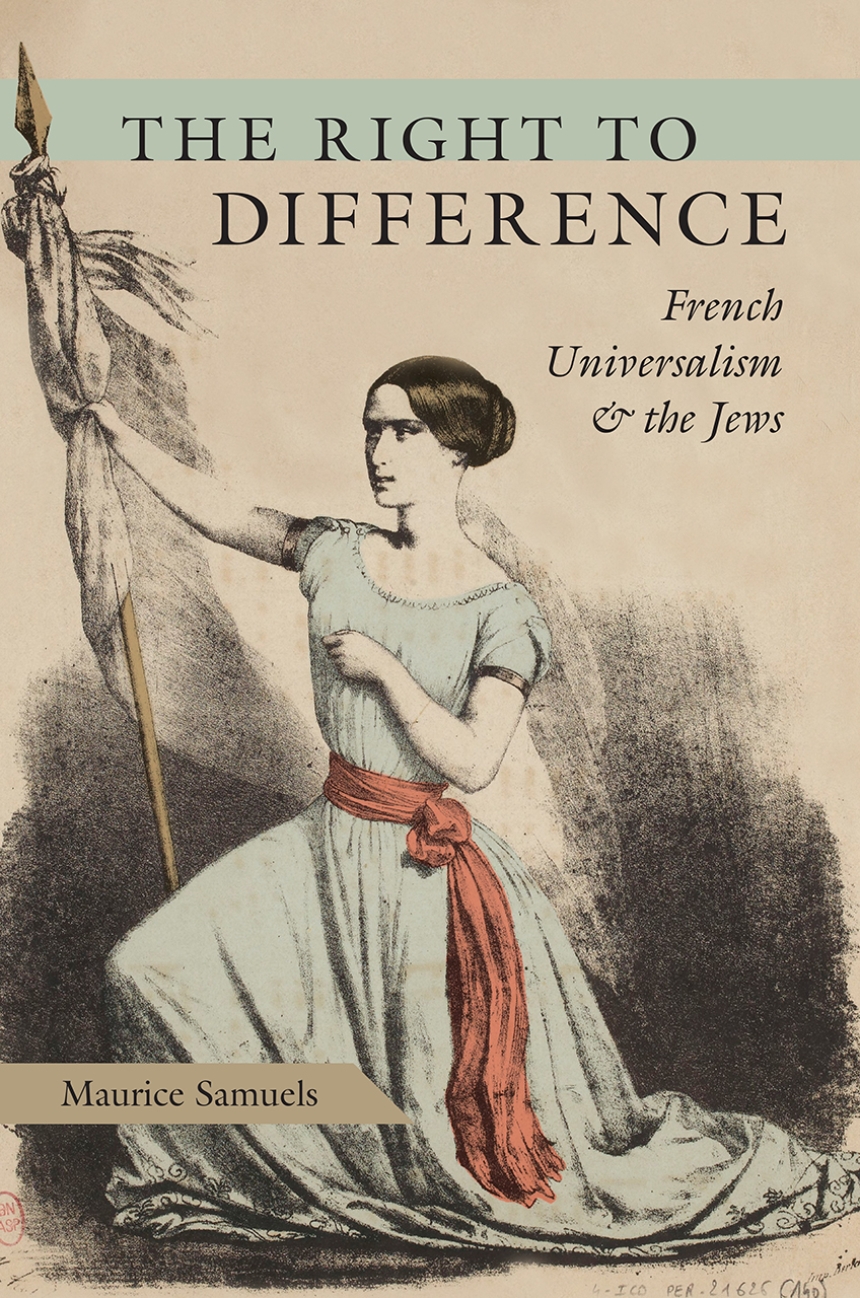The Right to Difference
French Universalism and the Jews
Universal equality is a treasured political concept in France, but recent anxiety over the country’s Muslim minority has led to an emphasis on a new form of universalism, one promoting loyalty to the nation at the expense of all ethnic and religious affiliations. This timely book offers a fresh perspective on the debate by showing that French equality has not always demanded an erasure of differences. Through close and contextualized readings of the way that major novelists, philosophers, filmmakers, and political figures have struggled with the question of integrating Jews into French society, Maurice Samuels draws lessons about how the French have often understood the universal in relation to the particular.
Samuels demonstrates that Jewish difference has always been essential to the elaboration of French universalism, whether as its foil or as proof of its reach. He traces the development of this discourse through key moments in French history, from debates over granting Jews civil rights during the Revolution, through the Dreyfus Affair and Vichy, and up to the rise of a “new antisemitism” in recent years. By recovering the forgotten history of a more open, pluralistic form of French universalism, Samuels points toward new ways of moving beyond current ethnic and religious dilemmas and argues for a more inclusive view of what constitutes political discourse in France.
Samuels demonstrates that Jewish difference has always been essential to the elaboration of French universalism, whether as its foil or as proof of its reach. He traces the development of this discourse through key moments in French history, from debates over granting Jews civil rights during the Revolution, through the Dreyfus Affair and Vichy, and up to the rise of a “new antisemitism” in recent years. By recovering the forgotten history of a more open, pluralistic form of French universalism, Samuels points toward new ways of moving beyond current ethnic and religious dilemmas and argues for a more inclusive view of what constitutes political discourse in France.
264 pages | 1 halftone | 6 x 9 | © 2016
History: European History
Law and Legal Studies: Legal History
Literature and Literary Criticism: Romance Languages
Religion: Judaism
Reviews
Table of Contents
Awards
Modern Language Association: MLA Scaglione Prize for French and Francophone Studies
Won
